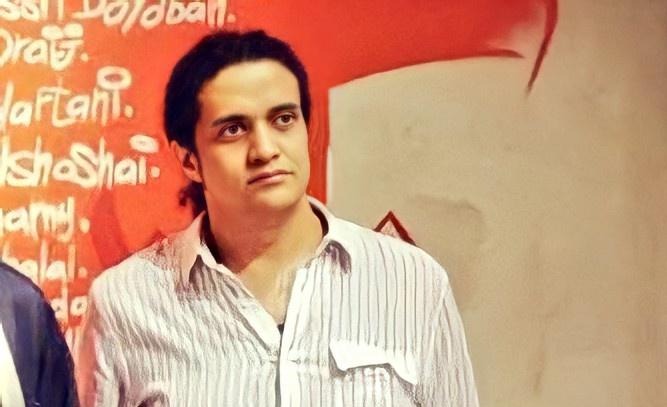
The Kingdom of Saudi Arabia continues to detain the Palestinian poet Ashraf Fayyad despite the end of his rule. Fayyad was sentenced on February 2, 2016, to 8 years in prison and 800 lashes, in addition to obligating him to declare his innocence over what he wrote and announce his repentance for "apostasy from Islam" in the official media. The sentence expired more than 4 months ago, when the period of his detention was calculated according to the Hijri calendar, which is the official calendar in Saudi Arabia. And since more than a month calculated by the Gregorian calendar.
In November 2015, the Abha court issued a death sentence for Fayyad, on numerous and loose charges, including: violating legal or public morals and insulting or mocking the divine, insulting the Prophet and spreading and calling for atheism, denying the Qur’an and hadiths, objecting to divine decree and predestination, denying the resurrection, and having pictures of women on his mobile phone. In February 2016, the court reversed the ruling to issue a prison sentence with 800 flogging.
From the moment of his arrest, Fayyad was subjected to a number of violations, including depriving him of his right to self-defense until the death sentence was issued. In December 2015, a group of United Nations special rapporteurs issued a statement calling on Saudi Arabia to stop the execution of Ashraf Fayyad, followed by a few days on December 16, 2015 another statement in which eight experts at the United Nations unanimously warned against an increase in the repression of freedoms in Saudi Arabia, calling on the authorities to take measures to protect them, as well as they condemned Ashraf Fayadh death sentence.
The European Saudi Organization for Human Rights believes that the continued detention of Fayyad despite the expiry of his sentence, is a violation of his basic right to freedom, and is a continued target on him, which began in 2014, on the background of expressing his opinion.
The organization stresses that the arrest of Fayyad in the first place, and the continuation of his imprisonment despite the claims of openness that followed in the years following the issuance of the verdict, and not releasing him despite the end of his sentence, shows the reality of the official dealings in Saudi Arabia with artists, poets and individuals who express their opinion, It also confirms the falseness of the Saudi claims of openness.
